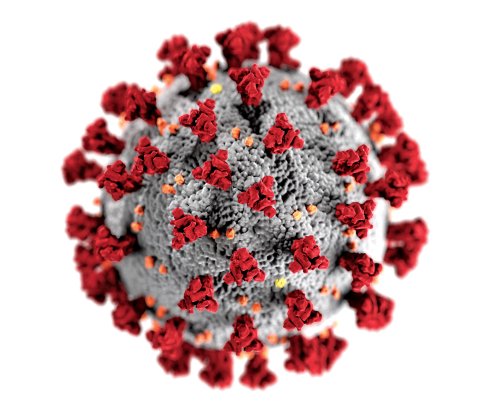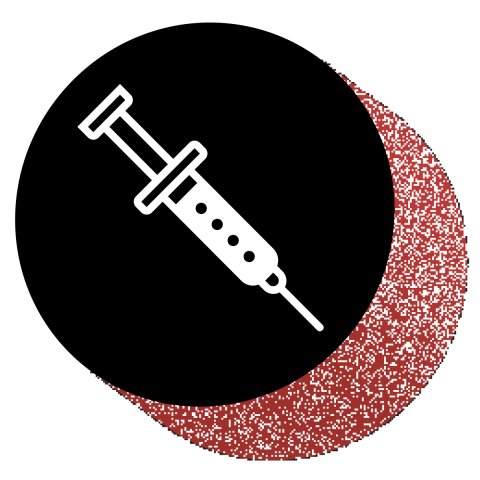Past Pandemics By The Numbers and How Coronavirus Fits In
BY SARAH DREHER NEWSWEEK ON 03/12/20
Since the beginning of humanity, highly contagious diseases have sporadically broken out and ravaged the population. Now, with faster and more frequent travel, diseases can spread more rapidly across continents and even worldwide. Now that the WHO has just classified the fast-moving novel coronavirus COVID-19 a global pandemic, here's a look at some stats that show how pandemics can spread and their impact.
–2013.76 → The largest drop in points ever for the Dow Jones Industrial Average, recorded on March 9, 2020, as fears rose over the spread of the coronavirus. The second biggest drop (1,465 points) came two days later. All told, six of the 10 biggest point declines for the Dow have occurred in the past three weeks, spurred by concerns about a possible pandemic.
90% → The highest mortality rates of recorded epidemics—certain outbreaks of Ebola have been this deadly, as well as untreated HIV/AIDS.
$570 billion → Estimated worldwide annual cost of a moderately severe to severe pandemic
36 → The number of hours it takes for a disease to spread from a remote village to major cities on every continent
SIGN UP FOR OUR NEWSLETTERSIGN UP
Update your preferences »
219% → Increase in medical mask sales in the U.S. in mid-February, compared to the same time last year. In response, the U.S. Surgeon General tweeted, "Seriously people—STOP BUYING MASKS!"

According to the WHO, masks should only be worn if used properly. Among their recommendations, healthy individuals only need to wear a mask if taking care of a sick person and wear a mask if you are coughing or sneezing.SPOON/GETTY
3,711 → The number of people quarantined on the Diamond Princess cruise ship after a case of the novel coronavirus was detected onboard. Of these, 705 have since contracted the disease.
2 → The number of infectious diseases that have been eradicated: smallpox and rinderpest
430 B.C. → The earliest recorded pandemic. An outbreak—likely typhoid fever—started near Ethiopia and spread through Libya, Egypt and Greece, killing up to a third of the population of Athens and contributing to their losing the Peloponnesian War.

3,711 → The number of people quarantined on the Diamond Princess cruise ship after a case of the novel coronavirus was detected onboard. Of these, 705 have since contracted the disease.
2 → The number of infectious diseases that have been eradicated: smallpox and rinderpest
430 B.C. → The earliest recorded pandemic. An outbreak—likely typhoid fever—started near Ethiopia and spread through Libya, Egypt and Greece, killing up to a third of the population of Athens and contributing to their losing the Peloponnesian War.

Corona virusCDC
Coronavirus Epidemics
MERS since 2012
27 countries
2,494 cases and 858 deaths
Mortality Rate 35%
SARS since 2002
29 countries and regions
8,096 cases and 774 deaths
Mortality Rate 9.6%
COVID-19 (12/31/2019–3/11/2020)
114 countries and territories
Over 124,000 cases and over 4500 deaths
Mortality Rate 3.4%
Major Pandemics

Black Death
1346–1353
Deaths: 25–50 Million
(30–60% of Europe's population)
Mortality Rate: 80%

Spanish Flu
1918–1919
Deaths: ~50 Million
(33% of world population)
Infections: ~500 Million
Mortality Rate: >2.5%

HIV/AIDS
1981–present
Deaths: 32 Million
Infections: 75 Million
Mortality Rate: 1.7% per 100,000
(down 33% since 2010)
SOURCES: Standard & Poors, WHO, Medscape, National Bureau of Economic Research, Nielson.com, Twitter, CDC, Japan Times, UN.org, History.com, ScientificAmerican.com, Historytoday.com, Johns Hopkins CSSE, UNAIDS
Coronavirus Epidemics
MERS since 2012
27 countries
2,494 cases and 858 deaths
Mortality Rate 35%
SARS since 2002
29 countries and regions
8,096 cases and 774 deaths
Mortality Rate 9.6%
COVID-19 (12/31/2019–3/11/2020)
114 countries and territories
Over 124,000 cases and over 4500 deaths
Mortality Rate 3.4%
Major Pandemics

Black Death
1346–1353
Deaths: 25–50 Million
(30–60% of Europe's population)
Mortality Rate: 80%

Spanish Flu
1918–1919
Deaths: ~50 Million
(33% of world population)
Infections: ~500 Million
Mortality Rate: >2.5%

HIV/AIDS
1981–present
Deaths: 32 Million
Infections: 75 Million
Mortality Rate: 1.7% per 100,000
(down 33% since 2010)
SOURCES: Standard & Poors, WHO, Medscape, National Bureau of Economic Research, Nielson.com, Twitter, CDC, Japan Times, UN.org, History.com, ScientificAmerican.com, Historytoday.com, Johns Hopkins CSSE, UNAIDS
No comments:
Post a Comment